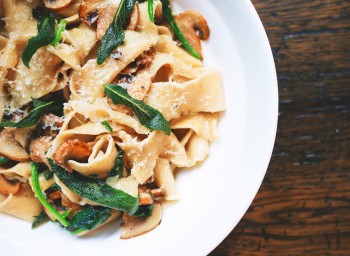What to Send to a Funeral Instead of Flowers
Funeral displays and condolence flowers have traditionally been the most popular item to send to a bereaved family. Floral arrangements send a message of love, support, and condolences—and the gesture is appropriate both at the funeral and at home. Even if you do not live close by, you can still be a part of the funeral by sending flowers for display.
However, funeral flowers aren’t the right fit for everyone. Many families request not to receive them for personal or religious reasons, there might not be a florist in your area, or you may wish to send something more unique and personalized. Whatever the reason, if you want—or need—to send something other than a floral display, here are a few ideas to consider.
- Sympathy Baskets: Most sympathy baskets can be purchased from the same providers that sell funeral flowers, making them one of the most popular non-floral choices. These baskets typically contain some combination of fruit, beverages, cheeses, candies, and other food items that can come in handy when a family is otherwise occupied. They also range in size from simple to elaborate, so you can price the basket accordingly.
- Condolence Card: In spite of the convenience of technology, you should never overlook the value of a handwritten condolence card. If you don’t have much money to spend but want to make sure the family is aware of your support, you can make or purchase a condolence card and include a personalized message or memory about the deceased. These items often become keepsakes in later years and can help a lot with the grieving process.
- Prepared Meals: If you’d like to go above and beyond snack foods, several companies also offer prepared meals for grieving families. Sending casseroles and other dishes has been a part of the funeral process for about as long as the flower tradition, but it can be difficult to help out if you live far away. A food prep company can step in and fill the gap—often with gourmet-level food.
- Photos of the Deceased: When a loved one dies, many people look through old photo albums and boxes to help spark memories and conversations. If you were close to the deceased and have photos, you may want to have copies made (or send the originals). There may be members of the immediate family who have never seen the pictures before, and having them could help them with the grieving process.
- Self-Care Gifts: It can feel indulgent to take a day out to go to the spa soon after a loved one dies, but self-care is an important part of grief. Give a gift certificate for a massage or manicure or send a basket that contains items such as aromatherapy, candles, bubble baths, blankets, books.
- Lawn/Home Care: Like food baskets or self-care packages, any gift certificate or service that will provide lawn care, home maintenance, and/or home cleaning can go a long way in showing your support. Although some people find solace in performing these tasks themselves, others might feel the burden of upkeep is too much. If you are local, you can do these kinds of things yourself; if you live far away, you can hire a service to help.
- Donations: Donations made in the deceased’s name are one of the most generous and versatile funeral gifts you can give. In this way, their memory can live on in a multitude of different ways—often with a charity or group that aligns with what they valued in life. If the family doesn’t name a charity in the obituary, you can simply ask.
Funeral flowers have a way of saying almost everything you need to say during this difficult time, but they are not for everyone. By sending a gift that conveys your love and support—and that matches the family’s wishes—you are sure to honor the memory of the deceased.



